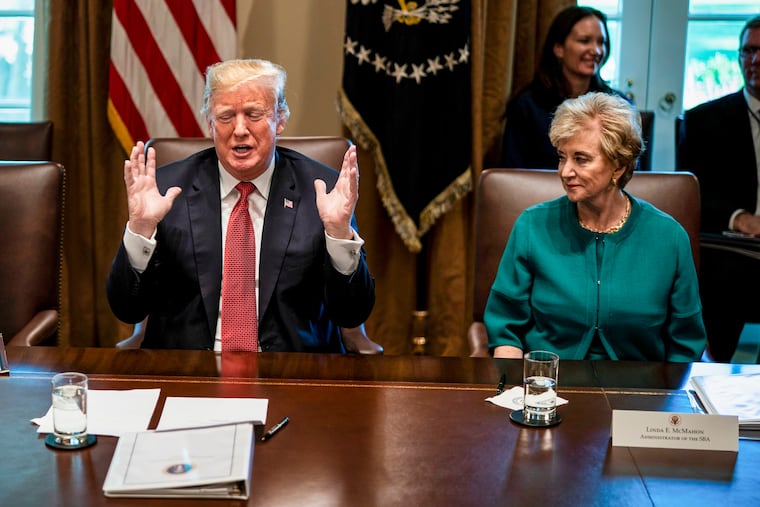The Trump administration and Congress will consider massive school funding cuts. Pennsylvanians must stop them.
The president-elect and the next Congress plan to fund tax breaks by ending Title I funding. In Pennsylvania alone, Title I provides $735 million to districts across the state.

When Donald Trump says he will “send education back to the states,” Pennsylvanians will need to reach for their wallets and get ready for teacher layoffs in their schools.
And they should prepare to fight.
The stakes are high. According to Project 2025, whose authors are currently staffing up the next Trump administration, one way President-elect Trump and the next Congress plan to fund billionaire-heavy tax breaks is by ending Title I funding, the federal education program that helps low-income students and low-income communities.
This would be a devastating loss. In Pennsylvania alone, Title I provides $735 million to Pennsylvania’s largest and smallest districts alike, from big districts like Philadelphia, Pittsburgh, and Allentown to the rural districts stretching across the state.
At its core, public education is an investment in every student as a future fellow citizen.
In a time of despondency, it is easy to accept these cuts as a tragic inevitability. In reality, however, with razor-thin majorities in Congress, Pennsylvania’s congressional delegation alone can stop those cuts in their tracks.
And this means it is up to Pennsylvanians to make that happen, by reminding their elected officials what we do when Pennsylvania’s leaders devastate schools with heartless funding cuts.
In 2010, Tom Corbett was elected governor of Pennsylvania by 10 points, riding a national wave of disillusionment with government. In his first budget, he slashed $850 million from Pennsylvania’s public schools, particularly those with the highest needs.
Teachers lost jobs, and class sizes swelled. In Philadelphia, layoffs were rampant, schools closed, and buildings accumulated staggering amounts of deferred maintenance. A child died from asthma after suffering in a school with no nurse on duty.
Moreover, amid this humanitarian disaster, property taxes increased across Pennsylvania, as local communities did whatever they could to mitigate the harm those funding cuts wrought.
But destruction and tax hikes were not the end of the story.
All over Pennsylvania, outraged communities took action. Gov. Corbett could not so much as visit a Philadelphia public school without being forced to turn around and leave.
The fury never subsided. Four years later, Corbett lost his reelection campaign by the same 10 points.
In the last 50 years, seven Pennsylvania governors have run for reelection. Only Corbett failed. There was little mystery as to why. As The Inquirer explained, “[T]hose first cuts, which rippled across the state in the form of teacher layoffs, program cancellations, and local property tax increases, were seared in the public mind and haunted [his] reelection campaign.”
That was not Corbett’s only education legacy. Near the end of his term, desperate school districts and communities filed a lawsuit against Corbett and the General Assembly for failure to adequately and equitably fund public schools.
Justice is slow, but nine years later, after a four-month trial in Commonwealth Court, a verdict was reached: Pennsylvania’s school funding system violated the state’s constitutional command to provide for the maintenance and support of a thorough and efficient system of public education.
And in response, Pennsylvania slowly started down the path to finally giving every child the education they morally deserve and are legally entitled to.
The lesson for current state lawmakers — who have been returned to office by a grateful public — is plain. Pennsylvania leaders should carry out their constitutionally obligated duty to provide every child with a comprehensive, effective, contemporary education. And the courts and voters will hold them accountable if they fail to do so.
This is no moment for hiding or giving up.
Good politics and constitutional compliance, in other words, are one and the same.
And as Corbett’s catastrophe reminds us, the lesson for Pennsylvania’s congressional delegation is just as clear: It is electoral suicide to force school communities to lay off kindergarten teachers and still raise taxes.
Congress is not generally blamed for inadequate education funding. But Pennsylvania’s lawmakers, who control the balance of power in Congress, will be held responsible should they take the nation and our state down that destructive path.
And the lesson for Pennsylvanians who are scared about the future is just as plain. This is no moment for hiding or giving up. Rather, it is a time to doggedly hold on with all our might and to use the very real power we still have.
At its core, public education is an investment in every student as a future fellow citizen. Education, like this Commonwealth of Pennsylvania and democracy itself, is worth fighting for.
Dan Urevick-Ackelsberg is a senior attorney at the Public Interest Law Center.